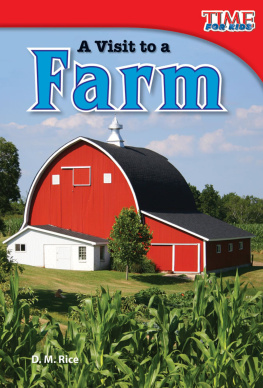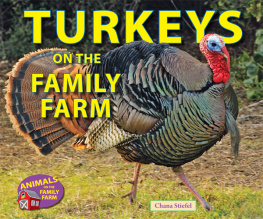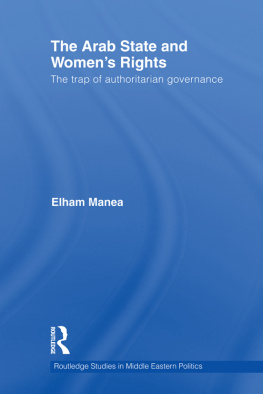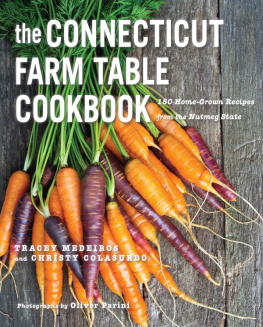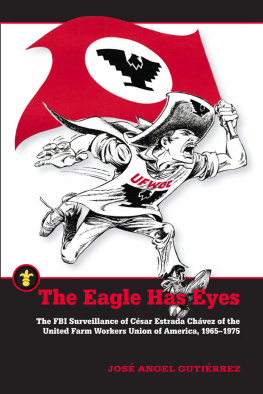Struggling for Survival
Development, Conflict, and Social Change Series
Series Editors
Scott Whiteford and William Derman
Michigan State University
Struggling for Survival: Workers, Women, and Class on a Nicaraguan State Farm, Gary Ruchwarger
Deep Water: Development and Change in Pacific Village Fisheries, Margaret Critchlow Rodman
Kilowatts and Crisis: Hydroelectric Power and Social Dislocation in Eastern Panama, Alaka Wali
The Spiral Road: Change in a Chinese Village Through the Eyes of a Communist Party Leader, Huang Shu-min
Ancestral Rainforests and the Mountain of Gold: Political Ecology of the Wopkaimin People of Central New Guinea, David Hyndman
Agrarian Reform in El Salvador, Martin Diskin
Surviving Drought and Development: The Ariaal of Northern Kenya, Elliot M. Fratkin
Photos by Todd Alwine and Kim Powick; reprinted by permission
First published 1989 by Westview Press
Published 2019 by Routledge
52 Vanderbilt Avenue, New York, NY 10017
2 Park Square, Milton Park, Abingdon, Oxon OX14 4RN
Routledge is an imprint of the Taylor & Francis Group, an informa business
Copyright 1989 by Gary Ruchwarger
All rights reserved. No part of this book may be reprinted or reproduced or utilised in any form or by any electronic, mechanical, or other means, now known or hereafter invented, including photocopying and recording, or in any information storage or retrieval system, without permission in writing from the publishers.
Notice:
Product or corporate names may be trademarks or registered trademarks, and are used only for identification and explanation without intent to infringe.
Library of Congress Cataloging-in-Publication Data
Ruchwarger, Gary.
Struggling for survival: workers, women, and class on a
Nicaraguan state farm / Gary Ruchwarger.
p. cm.(Development, conflict, and social change series)
Includes bibliographical references.
1. State farmsNicaraguaCase studies. 2. Agricultural
laborersNicaraguaCase studies. 3. Women in agriculture
NicaraguaCase studies. 4. Social classesNicaraguaCase
studies.I. Title.II. Series.
HD1493.N5R83 1989
306.3'49dc20
8937521
CIP
ISBN 13: 978-0-367-28902-7 (hbk
Despite the plethora of works on the Nicaraguan revolution, no book examines the workings of a state enterprise. I therefore approached this study with the goal of providing an analysis of some key aspects of class and gender relations on a Nicaraguan state farm. To gather direct knowledge of these relations, I conducted 14 months of primary research on the Oscar Turcios Chavarria enterprise just outside the town of Esteli. I spent much of the period from December 1986 to September 1988 interviewing company employees, attending union and management meetings, and studying enterprise documents.
I am indebted to Hector Valdivia, the state farms director, who granted me complete access to enterprise reports and a wide-ranging interview at the conclusion of my research. Special thanks must also go to Vivian Peres and Julian Salinas, the two men who sucessively held the post of general secretary of the enterprise union during the 19861988 period. Both union leaders provided me with frequent interviews and shared dozens of documents with me. I am also grateful to Alberto Martinez, the regional secretary of organization in the Rural Workers Association, who was always ready to answer my many queries concerning union policies. Among the other union officials who provided me with unusual opportunities to observe rank-and-file union activities were Melania Castillo and Nohelia Gutierrez. I also wish to thank Marietta Paz, the state farms personnel director, for her patient replies to my questions about the frequent changes in the enterprises wage and incentive system.
I am particularly grateful to Suzanne Lebell who, during the last three months of work, assisted me immensely in research, word processing, and editorial tasks. She conducted this work under trying conditions that included uninterrupted rainfall, amoeba attacks, insect invasions, and my sporadic intemperance. Finally, thanks are due to Blanca and Mercedes Arroliga for their painstaking collection of data on worker productivity and wages.
Gary Ruchwarger
March 1989
Now in its tenth year the Nicaraguan revolution has been studied from many perspectives. But few writers have attempted to analyze the revolutions drive to transform the countrys relations of production. By offering a case study of a Nicaraguan state farm, this book aims to contribute to such an analysis. In focusing on class and gender, it reveals some aspects of the revolutions evolving production relations. I say some aspects because, from the view of Marxist theory, any societys relations of production-or any other set of social relations-are tremendous collections of diverse processes, activities, and relationships intercon-nected in complex contradictions. To fully analyze them all in a systematic presentation would take vast numbers of Marxist theorists immense amounts of time. Writing in their seminal study, Knowledge and Class, Stephen A. Resnick and Richard D. Wolff depict this dilemma with uncommon frankness:
From the Marxian standpoint, the task of a comprehensive social analysis is in principle not achievable, neither for Marxian nor for any other kind of theory. It is rather like human beings achieving birdlike flight or avoiding death or eliminating all loneliness from a lifetime. Uke those impossibilities, the human incapacity to produce complete social analyses need not and should not bother us very much. To deny or dwell morosely upon our limitations promises little beyond bitter disappointment or bouts of depres-sion or both. The point is rather to recognize the limitations that influence but do not prevent our efforts to build productive personal and social situations.
In this spirit, then, I offer a partial analysis of some of the social processes underway on a Nicaraguan state farm. But before analyzing the enterprises class and gender relations, I will devote this introduction to a discussion of the key themes explored by this book.
A class analysis of revolutionary Nicaraguas state sector is important for two fundamental reasons. First, the Sandinistas are determined to overhaul Nicaraguas socioeconomic structure, ending the exploitation of man by man [sic]. But is it possible to abolish exploitation through nationalizing productive resources? Can a revolutionary society with a poorly educated working class avoid creating a new managerial classan elite of administrators and technicians that run the state sector in the name of workers and peasants? An analysis of wage policies and struggles among state farm employees over incentives, reclassifications, and the piece-rate system provides some answers to these questions.
Second, a class analysis of a state-run agricultural enterprise reveals the contradictions created by export agriculture. As I detail in , the Oscar Turcios Chavarria state farm earns 90 percent of its income from the export of tobacco. An increasingly important earner of foreign exchange for Nicaragua, tobacco requires substantial inputs, the intensive use of manual labor, and a well-trained staff of agronomists to oversee quality control. The demands of export agriculture thus engender production relations that tend to contradict specific goals of the revolution. How do the organizations that mediate class relations on state farms resolve conflicts between workers inspired by the popular power slogans of the revolution and an administrative stratum determined to earn dollars for an economy desperately in need of foreign exchange? Only an examination of class structure within a state enterprise can uncover the problems raised by these contradictory interests.


